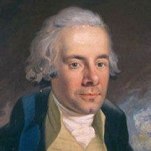
Immediately, he took to becoming a “serious” Christian, obstaining from the many vices of his fellow politicians, including drinking, endless dinner parties and none stop socializing. His thoughts on the matter were, “[They] disqualify me for every useful purpose in life, waste my time, impair my health, fill my mind with thoughts of resistance before and self-condemnation afterwards.”
He began to see his life’s purpose: “My walk is a public one,” he wrote in his diary. “My business is in the world, and I must mix in the assemblies of men or quit the post which Providence seems to have assigned me.” In particular, with influence from Thomas Clarkson and others, he was drawn to the issues of slavery. On slavery, he stated, “So enormous, so dreadful, so irremediable did the [slave] trade’s wickedness appear that my own mind was completely made up for abolition. Let the consequences be what they would: I from this time determined that I would never rest until I had effected its abolition.”
In the beginning, Wilberforce was very optimistic of his chances to abolish slavery, expressing, “no doubts,” on the prospects of quick success. Along with Clarkson, the two managed to originate 12 resolutions against slave trade and all were outmaneuvered on legal points. The path to abolition was blocked from numerous angles, from vested interests, parliamentary filibustering, entrenched bigotry, international politics, slave unrest, personal sickness and political fear. Additional bills by Wilberforce were defeated in 1791, 1792, 1793, 1797, 1798, 1799, 1804 and 1805. His commitment and persistence is a lesson to us all to never give up on a great cause.
His anti-slavery attempts finally bore fruit in 1807 when Parliament abolished the slave trade in the British Empire. He then set about to ensure those laws were enforced and later, the abolition of slavery throughout the British Empire, a feat that was achieved the year of his death, 1833. The abolition of slavery in the British Empire was altogether a collective effort of many courageous leader and one of the key drivers in the movement was Wilberforce.
In addition to his contributions to the abolition of slavery, he was also instrumental in enacting numerous other socially responsible laws throughout his lifetime in political leadership. He fought on behalf of chimney sweeps, single mothers, Sunday schools, orphans and juvenile delinquents. He helped found parachurch groups like the Society for Bettering the Cause of the Poor, the Church Missionary Society, the British and Foreign Bible Society, and the Antislavery Society.
Further, Wilberforce was dubbed, “The Prime Minister of a Cabinet of Philanthropists,” due to his active support in 69 philanthropic causes. He gave away one quater of his annual income to the poor. He fed the poor in his home daily. He loved animals and his home was filled with animals.
WIlberforce was a true Christian, in both his public and private life. He also was instrumental in changing the lives of hundreds of thousands of peopel all across the world. He stands as one fo the greatest Christian politicians the world has ever known. And certainly, an easy pick for the title, “Giant For God.”
Leave a Reply